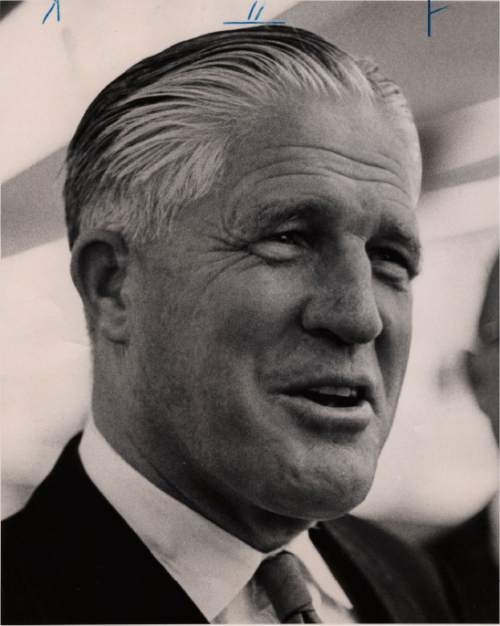This is an archived article that was published on sltrib.com in 2016, and information in the article may be outdated. It is provided only for personal research purposes and may not be reprinted.
Washington • Being a Mormon remains a liability when running for president, but it's not half the problem it would be for an atheist candidate.
A new poll shows that Muslims, gay and lesbian candidates and anyone with longtime Washington experience would also have it worse than Latter-day Saints seeking the White House.
Nearly a quarter of Americans surveyed by the Pew Research Center said they were less likely to vote for a Mormon presidential candidate, though 69 percent of those polled said it wouldn't matter.
The Pew survey shows that some 51 percent of Americans would be less likely to vote for a candidate who does not believe in God, while 42 percent said the same about a hopeful who is Muslim.
Those surveyed say that being a longtime Washington hand is also a negative, with 31 percent saying they would be less likely to vote for someone who has worked in the nation's capital for some time.
Nearly three-quarters of Americans said it wouldn't affect their decision if a presidential candidate had used marijuana in the past. Some 20 percent said that was a negative.
Still, even after Mormon candidate Mitt Romney's two White House runs, including his groundbreaking 2012 race as the Republican nominee, the portion of Americans who are less likely to vote for a Mormon for president remains relatively unchanged since Pew asked a similar question in 2007. Then, some 25 percent to 30 percent of Americans said they would hesitate to vote for a Mormon.
In fact, it's been almost a flat line in polls since 1968, when Romney's father, George, was seeking the Oval Office and a quarter of voters raised concerns about voting for a member of The Church of Jesus Christ of Latter-day Saints.
"It's not like it hasn't changed in four to eight years," says David Magleby, a political science professor at LDS Church-owned Brigham Young University. "It hasn't changed in nearly 50 years."
Of those who described themselves in the 2016 poll as Republicans, or leaning toward the GOP, some 22 percent said they would be less likely to vote for a Mormon. Some 24 percent of Democrats or those leaning Democratic said the same thing.
That was different in June 2012, when a Gallup poll showed only 10 percent of Republicans, or GOP-tilting voters, said a presidential candidate's Mormon faith was an issue.
"It is surprising," Magleby said, "that a sustained candidacy across two election cycles has not reduced that number among Republican voters."
That could be partly explained by the idea of a hypothetical Mormon presidential candidate. In June 2012, Romney's faith was well documented.
It's likely then, says Jessica Martinez, a senior researcher at the Pew Research Center, that voters identified even the hypothetical question with Romney.
"It's definitely more difficult to ask about a hypothetical trait when it's so tied to an actual candidate," she said.
Even so, evangelical voters, who are more likely to question whether the Mormon faith is a Christian one, voted overwhelmingly for Romney over President Barack Obama.
Romney's faith didn't factor into the overall decision for GOP voters, Martinez said.
The question of whether a presidential candidate's LDS faith plays into voters' decision is moot this election cycle, given that Romney declined to make a third run at the White House and no other Mormons are vying for the office on a major party ticket.
"It's very hypothetical at this point," Martinez says.
The Pew survey was conducted Jan. 7-14 with 2,009 adult respondents. For questions about the Mormon faith, the margin of error is plus of minus 3.5 percentage points.



